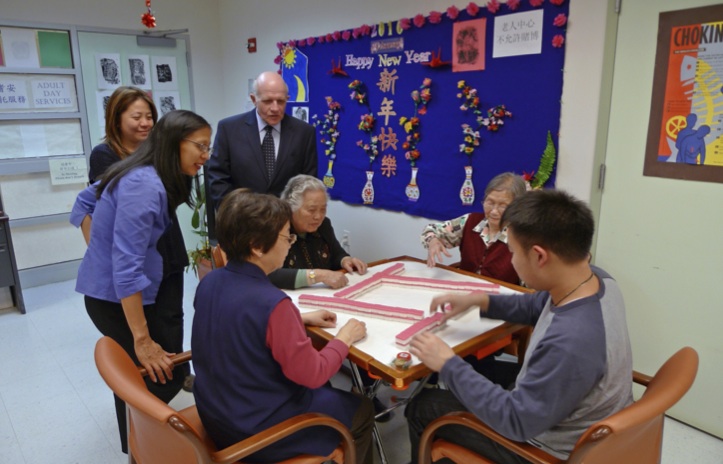News
Touro College Graduate School of Social Work Announces Launch of Innovative Program To Train Social Workers in Older Adult Care
School Aims to Meet Grow Need for Geriatric Social Workers

New York, N.Y. – Dr. Steven Huberman, dean of Touro College’s Graduate School of Social Work, has announced that the college has been selected to develop an innovative learning program to train social workers who plan to specialize in older adult care.
Based on a model developed by The New York Academy of Medicine’s Social Work Leadership Institute with support from the John A. Hartford Foundation, the program addresses the growing demand for social workers as the nation’s aging population more than triples by 2050 to 80 million. One out of every five Americans will be over the age of 65 by the year 2030, according to the U.S. Census Bureau.
Touro College is among an elite group of schools across the nation chosen to implement the model, known as The Hartford Partnership Program for Aging Education (HPPAE). To date, about 600 students have completed the HPPAE curriculum around the country and 80 percent of them have gone on to pursue careers in the geriatric field. Touro College will invite students to specialize in gerontological social work beginning with the fall 2010 semester, with the first crop of graduates expected to complete the specialization in spring 2011.
“While the population of Americans over the age of 75 continues to grow, there is a tremendous shortage of skilled geriatric social workers to accommodate their needs,” said Dean Huberman, adding that this is especially evident in the African-American, Hispanic, and Jewish communities in the New York metropolitan area. “The New York Academy of Medicine, along with Touro College’s Graduate School of Social Work, seeks to assist these underserved populations by enabling our older population to live independently in their own homes for as long as possible. This is not only beneficial for their psychological health, but is cost-effective for the government and taxpayers as well.”
The HPPAE seeks to build partnerships between institutions of higher education and community agencies that offer students hands-on and varied experience caring for older adults across a wide range of settings, including home-based care, community centers, hospitals, and nursing homes. The program differs from the traditional MSW model in that it offers students multiple field rotations rather than just a single clinical setting. Additionally, the colleges, universities and agencies participating collaborate on curriculum development to better bridge academic and practice learning.
Dr. Joann Ivry, MSW, associate dean at the Graduate School of Social Work, offered high praise for the program. “This model ties in with President Obama’s health care initiative, which places major emphasis on 2 preventative care,” she said. “In addition, geriatric social workers can help families ease their older relatives’ personal, logistical, and health issues while balancing work, childcare and other responsibilities.”
Dr. Ivry cited a 2004 survey by the National Association of Social Workers (NASW) that indicated only four percent of social workers specialize in the field of aging, and that nearly 30 percent of licensed social workers are over 55 -- close to retirement age themselves.
Dr. Donna Wang, MSW, a professor at the Graduate School of Social Work, cited an analysis of census data released by the New York City Department for the Aging in 1990-2000 that backs up Dr. Huberman’s statement. She pointed out that minorities now represent nearly one of every two elderly New Yorkers, as compared with one in three in 1990. During the same time period, she added, the number of minority elderly persons increased by nearly 141,000 - or almost 32 percent - while the number of white, non-Hispanic elderly decreased significantly by 167,000, or 20 percent. Among the white elderly, there were large decreases in younger age groups, thus giving greater weight to the number of older age categories.
“Americans are living longer than ever. However, illness and chronic disease will eventually plague many of them and they will require assisted care of some type,” Dr. Wang noted.
Media Contact
Barbara Franklin
Director of Communications
212-463-0400 x5530
Barbara.franklin@touro.edu

